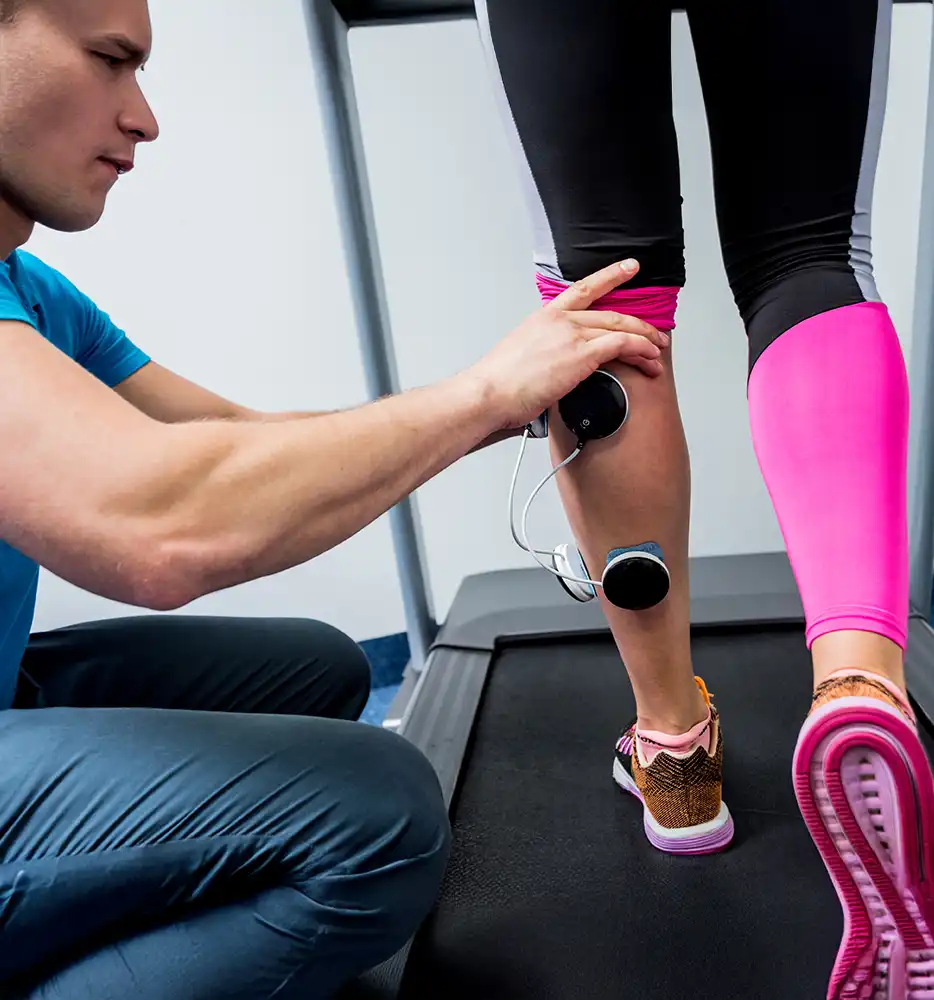
Psychology Master's Degree
Master of Arts (MA) in Psychology
What to expect from our M.A. in Psychology with a Clinical Concentration
The Clinical Psychology MA program at UTPB trains students in the assessment and treatment of mental disorders through individual, family, and group therapies. Grounded in the scientist-practitioner model, the program emphasizes theory, research design, and evidence-based practice.
- Scientist-Practitioner Model: Training in theory, research design, statistics, and evidence-based principles.
- Diverse Theoretical Orientations: Exposure to many therapeutic approaches, with a focus on cognitive behavior therapy.
- Licensure Preparation: Eligibility for licensure as a Professional Counselor (LPC) or Psychological Associate (LPA).
- Hands-On Practicum: One-on-one training in practice through the on-site practicum course.
- Community Engagement: Psychological services clinic providing psychotherapy and assessments to the Permian Basin community and the university.
What to expect from our M.A. in Psychology with an Experimental Concentration
The Experimental Psychology MA program at UTPB focuses on advanced psychological theory, research methods, statistics, and manuscript preparation. This program equips students with critical skills for careers in industry, research, and further academic pursuits.
- Advanced Training: Emphasis on psychological theory, research methods, statistics, and manuscript preparation.
- Methodological Expertise: Training in diverse methodological and statistical procedures.
- Research Experience: Opportunities to gain hands-on research experience and enhance project management skills.
- Career Preparation: Skills development for careers in industry and research settings, or further education in competitive Ph.D. programs.
- Diverse Faculty Expertise: Faculty expertise spanning clinical-counseling, cognitive, developmental, health, social, and neuroscience areas. Please see faculty profiles for more information about specific faculty interest.
Degree Requirements
- Students must complete 60 semester credit hours.
- Nine hours of required foundation courses must be completed before moving on.
- Students must complete 39 hours of concentration courses.
- Students are required to complete a master’s thesis or master’s project.
- Here is our MA Degree Plan in Clinical Psychology Concentration.
- Here is the recommended course progression for the clinical psychology concentration.
- Background checks are required for applicants and students of programs practicing in the UTPB Counseling and Psychology clinic.
- Become an Impact Major and earn your behavioral health master's degree for free.
- Apply for Impact Major Behavioral Health Scholarship.
See the detailed program information in the Psychology Graduate Handbook.
- Students must complete 36 semester credit hours.
- 18 hours of required foundation courses must be completed.
- Students are required to complete 12-15 hours of elective courses. Those courses should be consistent with a student’s overall goals.
- Students must complete a master’s thesis for up to 6 semester credit hours.
- Here is our MA Degree Plan in Experimental Psychology Concentration.
- Here is the recommended course progression for the experimental psychology concentration.
See the detailed program information in the Psychology Graduate Handbook.
- Complete a UTPB Graduate Application.
- Request for official transcripts to be sent to the Office of Admissions.
- Must have a GPA of 3.0 or better for all hours of undergraduate work.
- Must meet the minimum University requirements.
- Must provide three letters of reference, two of which must be from past professors who are in a position to evaluate the applicant’s qualifications for graduate study. The third letter, if not also from a past professor, should be from someone knowledgeable of the applicant’s knowledge and skills in a work or volunteer environment.
- Submit a statement of interest (also known as statement of intent) indicating their reasons for selecting UT Permian Basin, their interest in graduate education in Psychology, their preferred option of either Clinical or Experimental concentration, and their preferred mentor, if known. This statement should be no longer than two typed pages.
- Provide a writing sample with preference for research proposals, theses, or literature reviews written recently as an undergraduate student. If no recent undergraduate work has been done, candidates may write an essay regarding their educational journey to the master’s degree.
- Applicants should have all the necessary course prerequisites. Four undergraduate psychology courses (12 credit hours minimum) are required for admission to the M.A. program in Psychology:
- Introductory Statistics (e.g., PSYC 3301 at UTPB)
- Psychological Research Methods (e.g., PSYC 3304 and 3104, formerly known as Experimental Psychology at UTPB)
- An advanced, junior or senior level, course in psychology. Students interested in pursuing the M.A. in Psychology with the Clinical concentration are encouraged to take Tests and Measurement (PSYC 4351), as it is required before or concurrently enrolling in two of the graduate courses required for the degree (PSYC 6350 and PSYC 6351).
Students with deficiencies in the course prerequisites listed above may be granted “provisional” or “conditional” admission status, and must take the specified prerequisite courses and earn a minimum grade of B during the first two semesters the student is enrolled provisionally in the program. Students may enroll in the necessary undergraduate courses (PSYC 3301, Statistics; and/or PSYC 3304 and 3104, Psychological Research Methods) and in selected graduate courses concurrently.
University policy permits some graduate coursework taken while students are classified as “provisional.” Specifically, students may apply six graduate credit hours without petitioning (and a maximum of nine with petition) toward the degree. For all students, graduate courses with less than “B” (i.e., a grade of “C” or less) are not counted toward the degree.
Applicants, who have a GPA below 3.0 but above 2.5, may still submit their applications and be considered for “conditional” admission. However, in addition to the required application materials listed above, these applicants need to provide either their GRE test score or scores from Psychology ACAT test.
Please note that meeting the minimum requirements listed above does not guarantee admission into the program.
- Psychology faculty at UTPB specialize in Social, Cognitive, Health, Developmental, Sports, Counseling, and Clinical Psychology. Visit Psychology Faculty Research and Department of Psychology Faculty and Staff to see specific faculty information and research interests.
- For the differences between the Clinical Psychology Program and Counseling Program at UTPB, see the Comparison of Clinical Psychology and Counseling Programs.
Earn your Behavioral Health master's degree for free!
Make an Impact at UTPB and earn your master's degree for free. Gain the knowledge, skills, and real-world experience needed for a fulfilling career in social work, counseling, or psychology. Make an immediate impact in your community.
Learn MoreGraduate Catalog
Get a more in-depth look at the degree plan and required courses inside the course catalog.
Graduate Programs of StudyRelated Degrees & Programs
AMP - Biology
Masters
Accelerate your path to an advanced biology degree with the AMP-Biology program. Gain research experience and specialized skills for science careers.
Career Paths: Research Scientist, Environmental Consultant, Genetic Counselor, Science Policy Advisor, Clinical Research Coordinator.

Autism Spectrum Disorders
Masters
Specialize in Autism Spectrum Disorders with UTPB’s Online MA in Special Education.
Career Paths: Special Education Teacher, School Psychologist, Mental Health Counselor, Instructional Coordinator, Substance Abuse and Behavioral Disorder Counselor.

Bilingual/ESL
Masters
Advance your teaching career with an online MA in Bilingual/ESL Education and support diverse learners.
Career Paths: Bilingual Teacher, ESL Teacher, Language Instructor, Adult Education Teacher, World Language Teacher.

Biology
Masters
Advance your expertise in biological sciences with an MS in Biology, preparing for careers in research, education, and specialized fields.
Career Paths: Geneticist, Microbiologist, Biomedical Engineer, College-Level Teacher, Patent Law, Science Journalist.

Biomedical
Masters
Explore the intersection of biology and medicine with a Biomedical track. Gain skills for careers in research, healthcare, and biotechnology.
Career Paths: Biomedical Scientist, Biomedical Engineer, Clinical Scientist, Research Scientist, Pharmacologist.

Clinical Mental Health Counseling
Masters
Prepare for a career in mental health with an MA in Counseling – Clinical Mental Health Counseling. Gain skills to support individuals and families.
Career Paths: Substance Abuse Counselor, Marriage and Family Therapist, Rehab Counselor, Clinical Therapist.

Criminal Justice Administration
Masters
Fast-track your law enforcement career with an Accelerated Master’s in Criminal Justice Administration. Gain leadership skills for advanced roles.
Career Paths: Police Supervisor, Detective Supervisor, Probation Officer, Crime Scene Investigator.

Criminal Justice Administration - Online
Masters
Advance your career in criminal justice leadership with our flexible online program.
Career Paths: Compliance Manager, Compliance Officer, Detective, Emergency Management Director, Fire Inspector, Criminal Investigator.

Educational Diagnostician
Masters
Advance your career as an Educational Diagnostician with UTPB’s Online MA in Special Education.
Career Paths: Educational Diagnostician, Special Education Teacher, Instructional Coordinator, School Psychologist, Mental Health Counselor.

Educational Leadership
Masters
Develop leadership skills to excel in education administration with our flexible online program.
Career Paths: Educational Administrator, Education and Childcare Administrator, Educational, Guidance, and Career Counselor. Inspire and lead in education.

English
Masters
Deepen your knowledge of English literature and communication with our flexible online program.
Career Paths: Editor, Insurance Sales Agent, Proofreader, Public Relations Manager, Writer. Elevate your skills for impactful and creative careers.

Experimental Psychology
Masters
Accelerate your career with an AMP in Experimental Psychology. Focus on research and application in diverse psychology fields.
Career Paths: Social Worker, Engineering Psychologist, School Counselor, Clinical Psychologist, Professor, Art Therapist.

History - AMP
Masters
Accelerate your mastery of history with an Accelerated Master's in History. Fast-track your expertise in analysis and research for impactful roles.
Career Paths: Historian, Archivist, Educator, Policy Analyst, Journalist, Librarian, Political Scientist.

History - Master
Masters
Deepen your historical knowledge and analytical skills with an MA in History.
Career Paths: History Teacher, Regulatory Affairs Manager, Compliance Manager, Legislator, General and Operations Manager. Prepare for leadership and teaching roles.

History - Online Master
Masters
Earn your MA in History online and gain expertise in historical research and analysis.
Career Paths: History Teacher, Regulatory Affairs Manager, Compliance Manager, Legislator, General and Operations Manager. Build a foundation for impactful careers.

Kinesiology
Masters
Earn your MS in Kinesiology online and prepare for leadership roles in health and wellness.
Career Paths: Athletic Trainer, Chief Executive, Coach and Scout, Health and Safety Engineer, Physical Therapist Assistant, Occupational Health Supervisor.

Literacy
Masters
Explore storytelling with UTPB’s Online MA in Literacy. Strengthen critical thinking and communication for careers in education, media, and beyond.
Career Paths: Adult Educator, Editor, Teacher, Librarian, News Analyst, Writer, Author.

MBA + Public Health Certificate
Masters
Cert
Combine business and public health with an MBA and Public Health Certificate. Prepare for leadership in healthcare.
Career Paths: Health Services Manager, Chief Nursing Officer, Public Health Coordinator, Project Manager, Research Analyst.

MBA Health Management Cert
Masters
Cert
Boost your leadership in healthcare with an MBA and Health Management Certificate. Prepare for high-impact roles.
Career Paths: Healthcare Consultant, Policy Analyst, Clinic Director, Health Services Manager, Pharmaceutical Project Manager.

Professional Education
Masters
Advance your career with an MA in Professional Education. Gain expertise to lead and innovate in education.
Career Paths: School Counselor, Principal, Educational Consultant, Corporate Trainer, Textbook Author, Researcher, Curriculum Developer.

Psychology
Masters
Deepen your understanding of human behavior with an MA in Psychology. Prepare for roles in clinical, educational, and organizational settings.
Career Paths: Clinical Psychologist, Social Worker, School Psychologist, Forensic Psychologist, HR Manager.

Public Administration
Masters
Advance your career with UTPB’s Online Master of Public Administration. Build leadership skills for success in public service.
Career Paths: Criminal Justice, Economic Development, Fine Arts, Healthcare, Human Services, Public Safety, Transportation.

Reading
Masters
Advance literacy education with an MA in Reading. Develop expertise in teaching, coaching, and leadership.
Career Paths: Reading Specialist, Literacy Coach, Career Counselor, Reading Tutor, School Principal, ESL Teacher, Academic Coach, Editor, Author.

School Counseling
Masters
Make a difference in students’ lives with an MA in Counseling – School Counseling. Gain skills to support mental health and academic success.
Career Paths: School Counselor, Social Worker, Clinical Therapist, Mental Health Counselor.

Social Work
Masters
Advance your impact with UTPB’s Online MSW. Build advanced social work skills to create meaningful change.
Career Paths: Community Health Worker, Education Administrator, Healthcare Social Worker, HR Manager, Occupational Therapist.

Spanish
Masters
Advance your Spanish fluency and cultural expertise with an MA in Spanish from UTPB.
Career Paths: Government Linguist, Diplomat, Translator, Interpreter, Spanish Teacher, ESL Instructor Abroad, Immigration Agent, Technical Writer, Proofreader, Writer or Author.

Spanish - AMP
Masters
Advance your language skills with an Accelerated Master's in Spanish. Prepare for careers in communication, education, and global affairs.
Career Paths: Interpreter, Immigration Officer, Journalist, Educator, Relations Specialist, Teacher, Tour Guide.

Spanish - Online
Masters
Earn your MA in Spanish 100% online at UTPB. Enhance your bilingual skills and cultural literacy.
Career Paths: Foreign Correspondent, Translator, Spanish Teacher, ESL Instructor, Interpreter, Technical Writer, Tutor, Writer or Author.

Special Education
Masters
Earn your Online MA in Special Education from UTPB and develop the expertise to support students with diverse needs.
Career Paths: Special Education Teacher, Instructional Coordinator, School Psychologist, Counselor, Behavioral Disorder Counselor.
